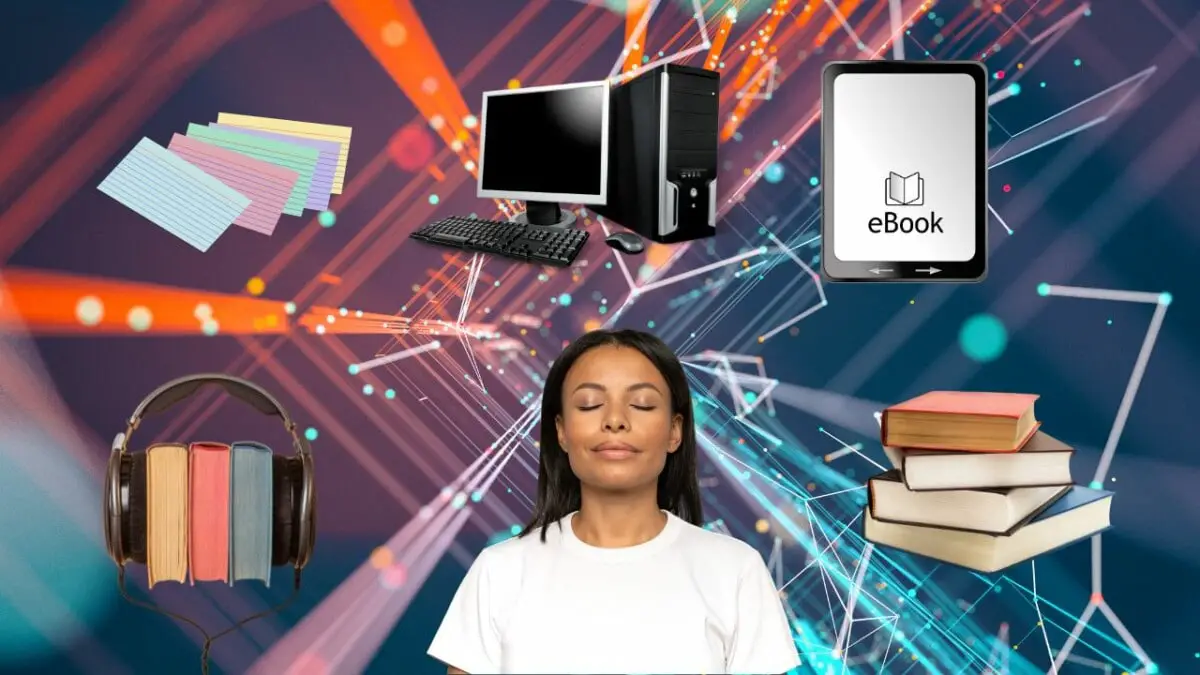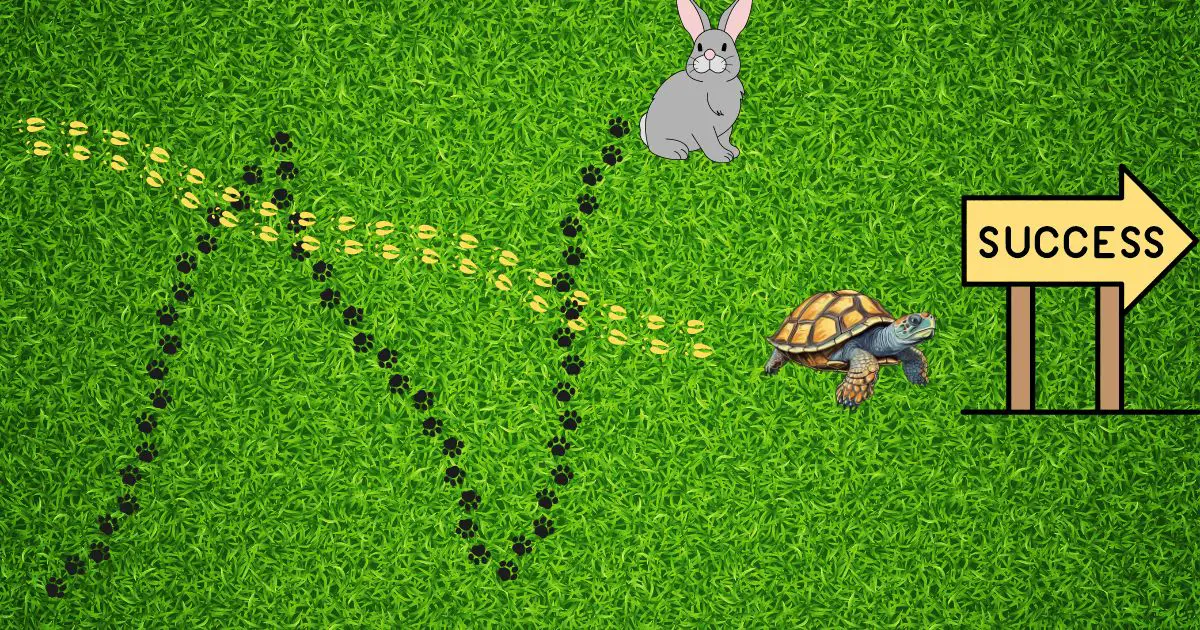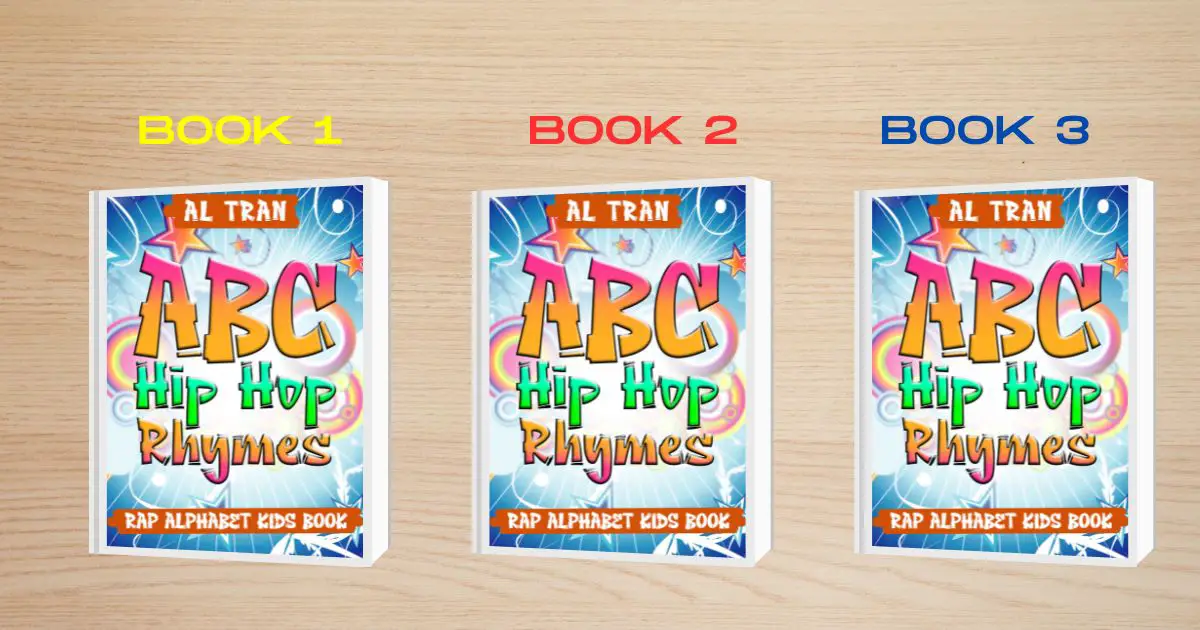Engaging in new paths of knowledge presents a lifelong journey, often challenging yet rewarding. Acquiring fresh skills, comprehending complex concepts, and accepting diverse perspectives all contribute to this continuous process of learning. This article explores pragmatic strategies for motivating you and guiding you through the adventure that is acquiring novel information and abilities, an essential approach in our ever-evolving world.
Remind yourself that without learning new things, there’s no progress in life. Learning new things is similar to committing to a workout; it requires initiative. Just take that first step and delve into unfamiliar territories. Experiment with various methods to push yourself to learn. Establish achievable goals and infuse an element of fun into your learning process.

Understanding the Psychology of Learning New Things
Research revealed the inherent resistance of our brains to change, illustrating how learning is indeed a complex cognitive process deeply rooted in various psychological factors. This resistance creates an organic barrier. Therefore, stepping outside our comfort zones becomes challenging, almost like navigating through uncharted territories. To conquer this challenge, we must first recognize and acknowledge the resistance. By understanding the psychological elements of learning, we can devise customized strategies that empower us to tackle potential obstacles in acquiring new knowledge.
Cognitive psychology, delving deeper, significantly influences the learning process. It investigates mental processes such as perception, and attention, a crucial factor in effective learning, memory retention, and problem-solving. When we apply these principles to our methods of instruction, we can shed light on why certain techniques prove more effective than others. For instance, comprehending the operations of memory can provide us with insights into optimal information retention techniques. Further, as we deconstruct the complexities of the human mind, we amass invaluable knowledge for fine-tuning our learning encounters.
- Neuroscientific Insight: Recent research suggests that neuroplasticity, the brain’s ability to reorganize itself, plays a vital role in learning.
- Cognitive Psychology Impact: Exploring cognitive psychology reveals the science behind memory, attention, and problem-solving in the context of learning.
Embracing the Growth Mindset
Adopting a growth mindset represents an effective approach to nurturing a positive learning experience. Through this shift in perspective from fixed traits towards continuous development, challenges metamorphose into growth opportunities. Thus, rendering every step in the educational journey not just affirmative but also empowering.
The concept of self-efficacy, a belief in your ability to succeed in specific situations or accomplish tasks, complements the growth mindset. Embracing both the growth mindset and strong self-efficacy engenders an exceedingly potent synergy for unceasing learning and development.
- Self-Efficacy Boost: Embracing a growth mindset enhances self-efficacy, fostering a belief in one’s capability to overcome challenges.
- Positive Learning Spiral: The growth mindset sets in motion a positive feedback loop, reinforcing the enjoyment of the learning process.
Setting Realistic Goals
Decomposing the learning process into achievable goals. This is a pivotal strategy for achieving success. Such an approach, not only renders the journey more manageable but also instills a constant sense of accomplishment with each milestone reached. This proves crucial to our sustained motivation. By setting realistic expectations and forestalling overwhelming feelings, we bolster confidence, thus creating that positive cycle so paramount in maintaining drive.
The SMART criteria, Specific, Measurable, Achievable, Relevant, and Time-bound provide a structured approach to goal-setting. One that ensures clarity, attains attainability and aligns with your overarching learning objectives. In applying these standards, a crucial step in effective planning, you guarantee not only the feasibility of your goals but also their relevance in propelling personal growth.
- SMART Goal Framework: Applying the SMART criteria ensures that goals are well-defined, achievable, and time-sensitive.
- Positive Reinforcement Loop: Setting and achieving realistic goals establishes a positive feedback loop, reinforcing motivation.
Overcoming Procrastination
Psychological factors such as fear of failure or perfectionism often root procrastination, a prevalent obstacle in the learning process. To combat this issue, you must break tasks into smaller and more manageable parts. It’s an approach that promotes productivity. The Pomodoro Technique, a method involving short bursts of focused work interspersed with brief breaks, proves effective not only for enhancing productivity but also for conquering procrastination.
Understanding the psychological triggers of procrastination, such as the Zeigarnik Effect, offers insights into interrupting its cycle. The Zeigarnik Effect posits that our thoughts tend to prioritize unfinished tasks over completed ones. This prioritization consequently engenders a persistent loop of procrastination. Recognizing and acknowledging this effect empowers individuals to actively intervene and refocus their attention accordingly.
- Zeigarnik Effect Awareness: Recognizing the Zeigarnik Effect helps in interrupting the cycle of procrastination.
- Pomodoro Technique: Implementing the Pomodoro Technique enhances productivity and mitigates procrastination tendencies.

Creating a Learning Environment
One cannot overstate the impact of surroundings on learning. Hence, it is crucial to design a dedicated learning space that minimizes distractions. Be it, a corner in your home, an inviting nook within a café, or perhaps even just the tranquil confines of a library, the environment decisively influences focus and fosters positive associations with academic pursuit.
Incorporating elements of environmental psychology, such as color psychology and spatial arrangement, can optimize the learning environment further. Understanding nuances like warm colors’ association with creativity and energy, for example, yellow or orange, may make spaces suitable for learning. This understanding empowers individuals to customize their learning environments maximally effectively. It puts them in control of their educational journey.
- Color Psychology Integration: Applying color psychology enhances the learning environment, with warm colors promoting creativity and energy.
- Spatial Arrangement Impact: Strategic spatial arrangement in the learning environment contributes to a more conducive and effective study space.
Exploring Diverse Learning Methods

Leveraging Technology
In the digital age, a plethora of learning resources is offered by technology. Online courses, educational apps, and interactive platforms, all provide not only flexibility but also accessibility. Therefore, identify the medium that aligns most with your learning style and preferences.
Renowned institutions and experts often host online courses, which have emerged as a cornerstone of education in the digital learning realm. These offerings cover an extensive array of subjects, presenting not just accessibility advantages but also providing unparalleled flexibility. Learners possess the capacity to determine their own pace. This is an ideal arrangement for individuals burdened by busy schedules or fluctuating commitments.
Moreover, specially designed educational apps catering to diverse subjects promote a significantly more interactive and engaging learning experience. When you embrace technology, they are essentially tapping into these resources, customizing their unique learning journey to align with individual needs and preferences.
- Adaptive Learning Platforms: Some online courses use adaptive learning technology, tailoring the content based on individual progress and understanding.
- Tech-Driven Skill Assessments: Many educational apps incorporate skill assessments that help learners identify areas for improvement, offering targeted learning experiences.
Collaborative Learning
Learning need not remain a solitary pursuit. You can join study groups, engage in online forums, or attend workshops. Each of these activities cultivates a sense of community. Active participation with others offers more than just diverse perspectives. It also presents an opportunity for support and encouragement.
Beyond traditional classrooms, collaborative learning thrives such as online forums, specifically dedicated to subjects and established virtual communities. Learners from across the globe actively contribute their insights and questions. These platforms foster a dynamic exchange of ideas and perspectives that enriches the overall learning experience. Attending workshops or webinars provides more than just a chance to deepen your understanding of complex topics through real-time interaction with experts.
It also broadens your knowledge base and establishes connections and a supportive network for the educational journey. The significance lies not merely in expanding your learning horizons but fostering relationships with similarly driven individuals.
- Virtual Study Sessions: Organize virtual study sessions with peers to discuss challenging concepts and share different approaches to problem-solving.
- Global Learning Networks: Online forums often connect you with learners worldwide, exposing you to diverse cultural viewpoints and study techniques.

Practical Application
Apply your knowledge in real-life situations by practicing a language you’re learning out loud, using coding language to create a video game, or playing an instrument. The practical application of these skills not only solidifies understanding but also imbues the learning experience with greater meaning.
Enhancing the relevance of learning occurs when you apply knowledge to real-world situations, just like language acquisition. Rather than just memorizing vocabulary, actively participate in dialogues with native speakers or immerse yourself in music from the target culture. This strategy can significantly boost linguistic proficiency.
The same can be said for mastering a coding language, which requires more than just theoretical knowledge, it demands active engagement. Engage in small coding projects or contribute to open-source initiatives as an application of your learning process.
These practical applications are similar to the principle involved with musical instruments. Engage in collaborative play and create compositions as a form of practical application. Practical application not only strengthens theoretical understanding but also tangibly hones your skills. This underscores the significance of actively interacting with concepts and ideas in the real world.
- Project-Based Learning: Undertake projects that align with your learning goals, applying theoretical knowledge to solve real-world problems.
- Cross-Disciplinary Application: Explore how skills from one area of study can be applied in unexpected or cross-disciplinary ways, fostering a holistic understanding.
Learning from Mistakes
Embracing failure as a crucial component of the learning process, we should not perceive mistakes merely as setbacks. Rather, view them with an intelligent perspective, as opportunities to enhance our understanding. Actively engaging in this approach will enable us to harness lessons learned from failures for continual improvement and progressive advancement.
Mistakes are not roadblocks, and they serve as stepping stones towards mastery. New concepts often unearth areas in need of deeper understanding through the lens of errors. Rather than feeling discouraged, regard these missteps as invaluable diagnostic tools.
Analyze the errors, identify misconceptions, and then, correct them. This iterative process serves not only to solidify your understanding but also to build resilience. Embrace failure as an inherent part of the learning journey. Through this, foster a growth mindset, a critical attribute for continuous improvement.
- Feedback Loop Integration: Actively seek feedback on your work, creating a continuous improvement loop that accelerates the learning process.
- Mistake Journaling: Keep a journal noting down mistakes, the lessons learned, and strategies for improvement, turning setbacks into proactive learning opportunities.

Make Learning Entertaining
Learning new things doesn’t need to feel like a chore; in fact, it can be incredibly enjoyable and entertaining. Take learning how to draw or playing basketball, for example. These activities can be both fun and educational, providing your brain with the boost and confidence it needs to grow faster as you learn new things.
When you engage in learning something you genuinely enjoy, the process becomes faster and easier. Once you’ve mastered one skill, your brain adapts and becomes more adept at learning other things quickly. Learning doesn’t always have to be forced; it can be a source of joy and entertainment.
- Educational Fun: Learning doesn’t have to feel like a task; try exploring things you enjoy, such as learning to sing karaoke.
- Stressful Learning: Avoid learning things that are too stressful especially if it not required in your life.
Maintaining Motivation

Connecting with Passion
Identify your true interests and integrate them into your learning journey. Aligning them with your passions makes the process of education more enjoyable. When you cultivate a passion for a subject, motivation becomes an innate part. It springs forth naturally.
In learning, passion wields a formidable force. Connecting your educational endeavors to your passions elevates the journey beyond mere tasks. It metamorphoses into an enriching experience. Exploring historical events, delving into artistic expressions, or comprehending scientific phenomena, aligning your learning with these pursuits fosters intrinsic motivation.
- Passion Mapping: Identify your passions and map out how they intersect with various subjects, creating a personalized learning roadmap.
- Intrinsic Motivation Boost: Passionate learners often find motivation intrinsically, reducing the reliance on external rewards or pressures.
Celebrating Achievements
Allocate time for acknowledging and celebrating your achievements, regardless of their magnitude. Recognizing these successes not only fortifies positive behavior but also establishes a feedback loop that fosters motivation to persist on your educational voyage.
When pursuing knowledge, you must not overlook the vital aspect of acknowledging and celebrating achievements. The completion, be it a challenging module or the mastery of complex concepts, even achieving personal learning milestones merits recognition. By celebrating these accomplishments, confidence receives an essential boost while simultaneously creating a positive feedback loop.
These celebration achievements are crucial elements in any academic journey. Recognizing your progress fills you with joy and satisfaction, subsequently, acting as fuel for further progress. These potent emotions act as robust motivators, urging you to persist despite challenges. They bolster resilience in the face of setbacks.
- Micro-Celebrations: Break down your learning goals into smaller milestones and celebrate each achievement, fostering a continuous sense of accomplishment.
- Positive Reinforcement: Actively recognize your efforts, reinforcing the idea that learning is a series of accomplishments, not just a final destination.

Seeking Support
Engage a support system. Communicate your learning objectives to friends, family, or mentors, individuals capable of offering guidance and encouragement. The presence of an active network can transform the journey, from daunting to enjoyable thus enhancing overall progress in education.
Learning thrives in a supportive environment that is not solitary. During challenging times and when faced with obstacles, the external support system functions as both a motivation source and a guidance provider. This provides invaluable insights into our educational journey.
Knowing you possess a community to rely on fosters an enhanced sense of connection, a crucial element that makes the learning journey not only more enjoyable but also collaborative. Furthermore, it mitigates the overwhelming aspects, reducing them significantly.
- Accountability Partnerships: Form partnerships with others pursuing similar learning goals, creating mutual accountability and encouragement.
- Diverse Perspectives: Seek support from individuals with diverse backgrounds and experiences, enriching your learning journey with varied perspectives.
Conclusion
Committing yourself to the transformative process of learning new things requires resilience and a strategic approach. Understanding the psychological aspects of learning, exploring diverse methods, and maintaining motivation are all factors that contribute significantly. They enable you not only to navigate challenges but also embark on an enriching journey. Keep in mind that, the relentless pursuit of knowledge propels your life as a perpetual adventure where every step taken inches closer towards personal growth and self-discovery.





